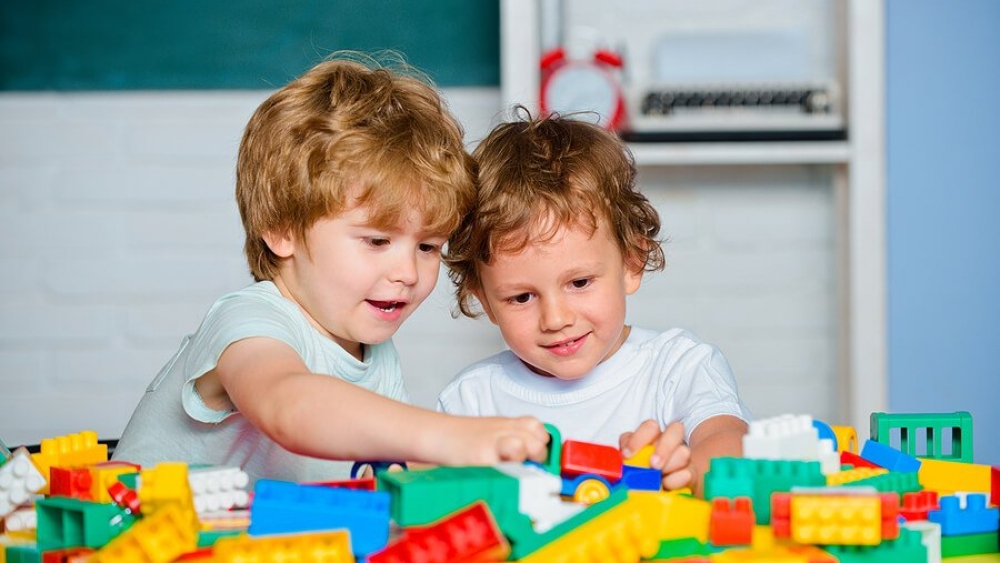When your child reaches the age where preschool is an option, the transition from home to school might seem daunting to you—and your child. You can make the transition easier with these five easy activities that will prepare your child for the first stage in their education, whether they attend a traditional preschool or a specialized one, like the Valor Montessori Prep, a Montessori preschool in Chatsworth, CA:
1. Practice Fine Motor Skills
Your child will develop their fine motor skills through class activities, but it’s helpful to get a head start on strengthening the small muscles in their hands. Some fun activities that can help are coloring, doodling, and tracing pictures. An activity that doubles by improving their visual focus is connecting the dots on worksheets.
Craft projects can help your child improve their hand strength and dexterity through various hand exercises. They’ll practice different hand motions, from the pincer grip needed to hold writing tools to the coordination of opening and closing scissors. Another dynamic activity is playing hide and seek with small objects hidden inside putty, which helps build the hand dexterity needed to write. Another fun activity is using tongs to pick up objects while building hand strength.
Fine motor skills can also be practiced through self regulation, an important aspect of the curriculum at Montessori preschools. By tying their shoelaces, buttoning their clothes, and fixing their hair, your child can refine their ability to control small hand movements.
2. Practice Social Skills
As your child grows, school will become their main source of social interaction. Before class, teach them to make eye contact when talking instead of letting their eyes dart all around. If your child is averse to eye contact because it feels strange, you can put a sticker between your eyes and have them look at it instead. After practicing, remove the sticker and your child should maintain mock eye contact. As your child gets comfortable, they’ll shift to make direct eye contact.
Just as important is teaching your child to talk clearly and loudly. They shouldn’t have to repeat themselves multiple times to be understood. With practice, you can help your child figure out how much strength they need to put into their voice. To help with listening comprehension, tell your child a brief story then ask questions. Your ultimate goal is to teach them to listen and remember instructions.
3. Go Over the Proper Way to Hand Wash
You won’t be around your child to see if they wash their hands before lunch. A good school will have teachers and assistants who make sure everybody washes up, but to be safe, your child should be self-sufficient with proper washing techniques.
Teach your child to wash their hands for twenty seconds, which can be measured by singing “Happy Birthday” under their breath or in their head. Your child might get bored singing the same song, so other songs to add to their personal playlist are “Row, Row, Row Your Boat,” the alphabet song, and if they’re a fan of Frozen, the chorus of “Let It Go” works.
Also teach your child to scrub all the nooks and crannies of their hands, including under nails, between fingers, the back of their hands, and the most neglected finger: their thumbs.
4. Play School
Help your child understand what’s expected of them by role-playing a day at school. Start in the morning with getting dressed, eating breakfast, checking their backpack for school supplies, putting on their shoes, then heading out. At lunch time, put them through a mock school lunch by having them open their lunch box and containers (fine motor skills come in handy here), and pack up afterward.
Also, prepare your child to use the restroom before school and during lunch. They should start building up bladder control so that they won’t have to leave class during a lesson.
Playing school won’t completely match up with the school experience, so make sure your child understands that the routine will be different. You don’t want them to be disappointed or thrown off balance into anxiousness when their expectations don’t play out.
5. Discuss Feelings About School
Your child might be nervous about starting school, especially if this is their first time apart from you for several hours. Sit down with them to put a name to their feelings. How do they feel about this change? What do they think will happen at school and is there anything they’re worried about? Whatever they say, do not invalidate their feelings and brush them off. This might cause them to close off from you and internalize their worries. Your child should be safe and comfortable coming to you for help.
Your child might have misconceptions about how long school lasts, what they’re expected to do, and might base their expectations on what’s shown on TV. Talk your child through their misconceptions, because the less your child thinks they’re walking blindly into a situation, the more confident they’ll be on the first day of school.
If your child has separation anxiety, you can ease their fears by establishing a farewell routine that reduces uncertainty. For example, you might hug your child and say, “I’ll see you later, okay?” each time before you leave. Keep it short and consistent, and don’t make a big deal of it. Your child will learn to see school as a regular activity.
If you haven’t yet chosen a school for your growing toddler, consider Valor Montessori Prep. Our mission is to preserve and enhance a child’s educational journey, while teaching them life skills that last beyond their school career. Contact us to learn more about our curriculum and programs.

